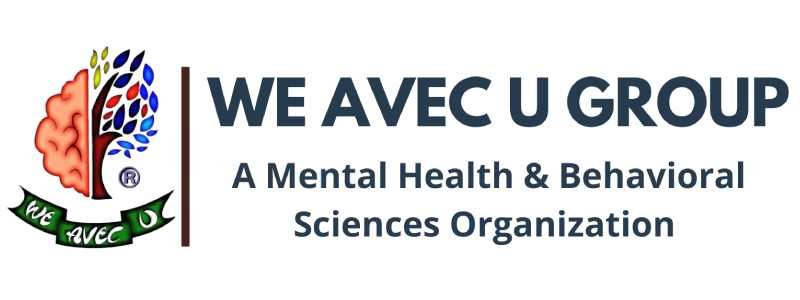Mental health and well-being are essential components of a healthy and fulfilling life. Unfortunately, many people neglect their mental health and fail to take steps to boost their well-being on a daily basis. However, there are several simple and effective things you can do to improve your mental health and promote overall well-being. In this blog we will explore some tips to boost mental health on a daily basis.
Why is Boosting Mental Health Important?
A healthy mind is the cornerstone of a fulfilling life. It enables us to conquer the hurdles we face, build enriching relationships, and achieve our aspirations. Not only that but our mental health is intrinsically linked to our physical well-being, meaning that taking care of our mind is a vital component of taking care of our whole selves.
Unfortunately, when we neglect our mental health, we risk inviting a litany of negative consequences into our lives. Depression, anxiety, poor sleep, and reduced quality of life can all be the unwelcome byproducts of neglecting our mental health. These problems can then ripple out into our personal and professional lives, making it more challenging to form healthy relationships or excel in our pursuits.
That’s why it’s so essential to prioritise our mental health by committing to self-care, seeking support when we need it, and taking part in activities that bring us joy and promote wellness. These practices build resilience, allowing us to confront life’s challenges with grace and aplomb. And when we prioritise our mental health, we can unlock a world of greater fulfilment, joy, and satisfaction.
Tips to Improve Mental Health
As the author of ‘The Good Psychologist’ – Noam Shpancer said
“Mental health is not a destination, but a process. It’s about how you drive, not where you’re going.”
It is essential to boost mental health on a daily basis for which here are a few mental health tips you can add to your daily routine
Practice Mindfulness
Mindfulness is the practice of being present and fully engaged in the moment. It involves paying attention to your thoughts, feelings, and surroundings without judgement. Research has shown that mindfulness can be an effective tool for reducing stress, anxiety, and depression, and improving overall mental health and wellbeing.
In one study, participants who practised mindfulness meditation for eight weeks showed significant improvements in symptoms of anxiety, depression, and stress compared to a control group (1). Another study found that mindfulness-based interventions were effective in reducing symptoms of post-traumatic stress disorder (PTSD) (2).
To practise mindfulness, you can try techniques such as deep breathing, guided meditation, or body scans. There are also several mindfulness apps available, such as Headspace and Calm, that can help you get started.
Exercise Regularly
Exercise is not only good for your physical health but also your mental health. Regular exercise can help reduce symptoms of anxiety and depression, improve mood and cognitive function, and promote overall well being.
In one study, researchers found that exercising for 30 minutes three times a week was just as effective as medication in reducing symptoms of depression (3). Another study found that exercise can help improve cognitive function in individuals with mild cognitive impairment (4).
To reap the mental health benefits of exercise, aim for at least 30 minutes of moderate-intensity exercise, such as brisk walking, cycling, or swimming, most days of the week. You can also incorporate strength training, yoga, or other forms of physical activity into your routine.
Connect with Others
Human connection is essential for our mental health and wellbeing. Social support can help reduce feelings of loneliness and isolation and promote feelings of happiness and wellbeing.
Research has shown that individuals who have strong social connections are less likely to experience symptoms of depression and anxiety and have better overall mental health (5). Additionally, social isolation has been linked to a range of negative health outcomes, including increased risk of mortality, cardiovascular disease, and depression (6).
To promote social connection, make an effort to connect with friends and family regularly. You can also join social groups, clubs, or volunteer organisations to meet new people and build connections in your community.
Practice Self-Care
Self-care is about taking time to prioritise your own needs and wellbeing. It involves engaging in activities that promote relaxation, stress reduction, and overall well being.
Research has shown that self-care can help reduce symptoms of anxiety, depression, and stress, and promote overall mental health and wellbeing (7).
To practise self-care, you can try activities such as taking a relaxing bath, yoga or meditation, reading a book, or engaging in a hobby you enjoy. The key is to find activities that help you feel relaxed and rejuvenated.
Get Enough Sleep
Sleep is essential for our mental and physical health. It helps our bodies and minds recharge and restore, and plays a crucial role in maintaining overall wellbeing.
Research has shown that sleep deprivation can have a range of negative effects on mental health, including increased risk of depression, anxiety, and cognitive impairment (8).
To promote good sleep hygiene, aim for 7-8 hours of sleep each night. Establish a bedtime routine that helps you wind down and relax before bed, such as reading a book or taking a warm bath.
Make Self-care a Priority
Taking care of your mental health and wellbeing should be a top priority in your daily routine. Implementing these tips and techniques can help you boost your mental health and create a more positive and fulfilling life. Remember to practise self-care, stay connected with loved ones, exercise regularly, practice mindfulness and gratitude, and prioritise good sleep hygiene.
At We Avec U, we are committed to providing you with helpful resources and guidance on all aspects of mental health. We hope that this blog has given you valuable insights and tips to improve your mental health on a daily basis. Take care of yourself and don’t hesitate to seek help if you need it.
We Are With You!





